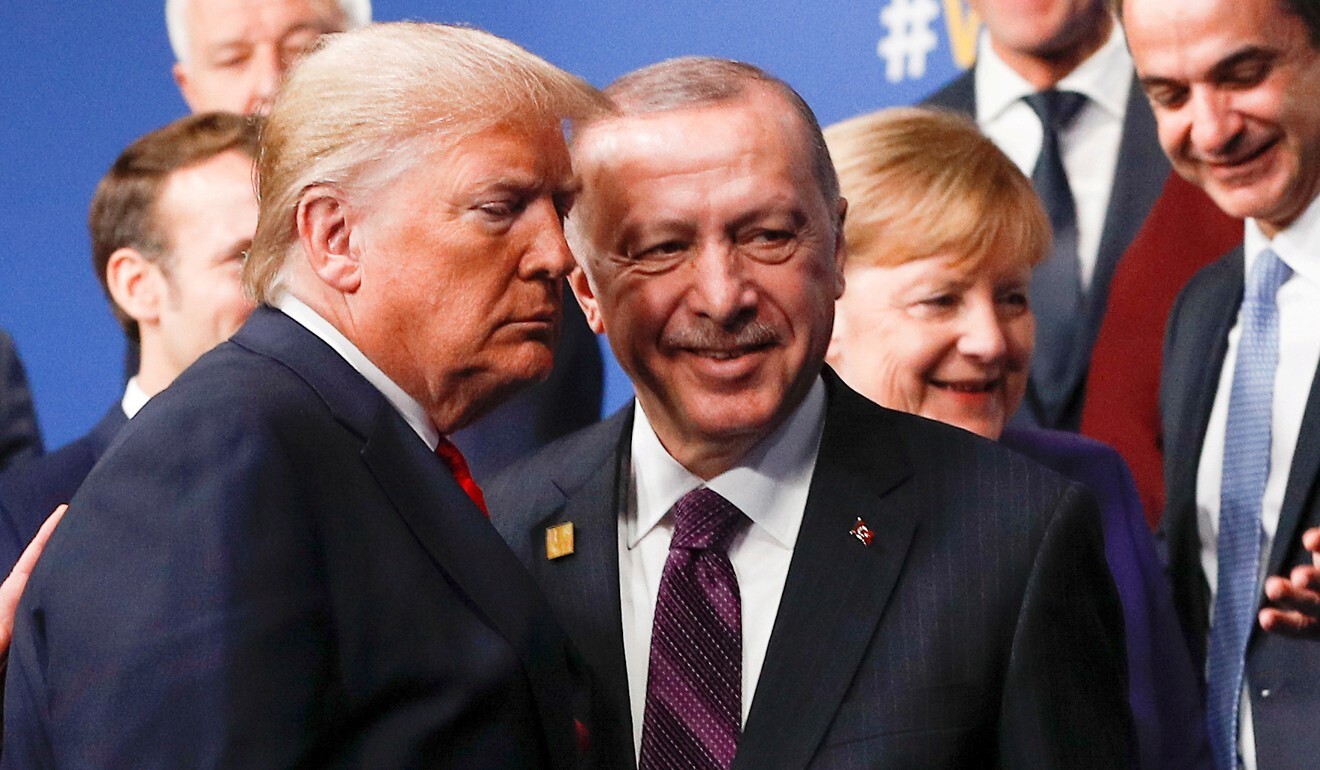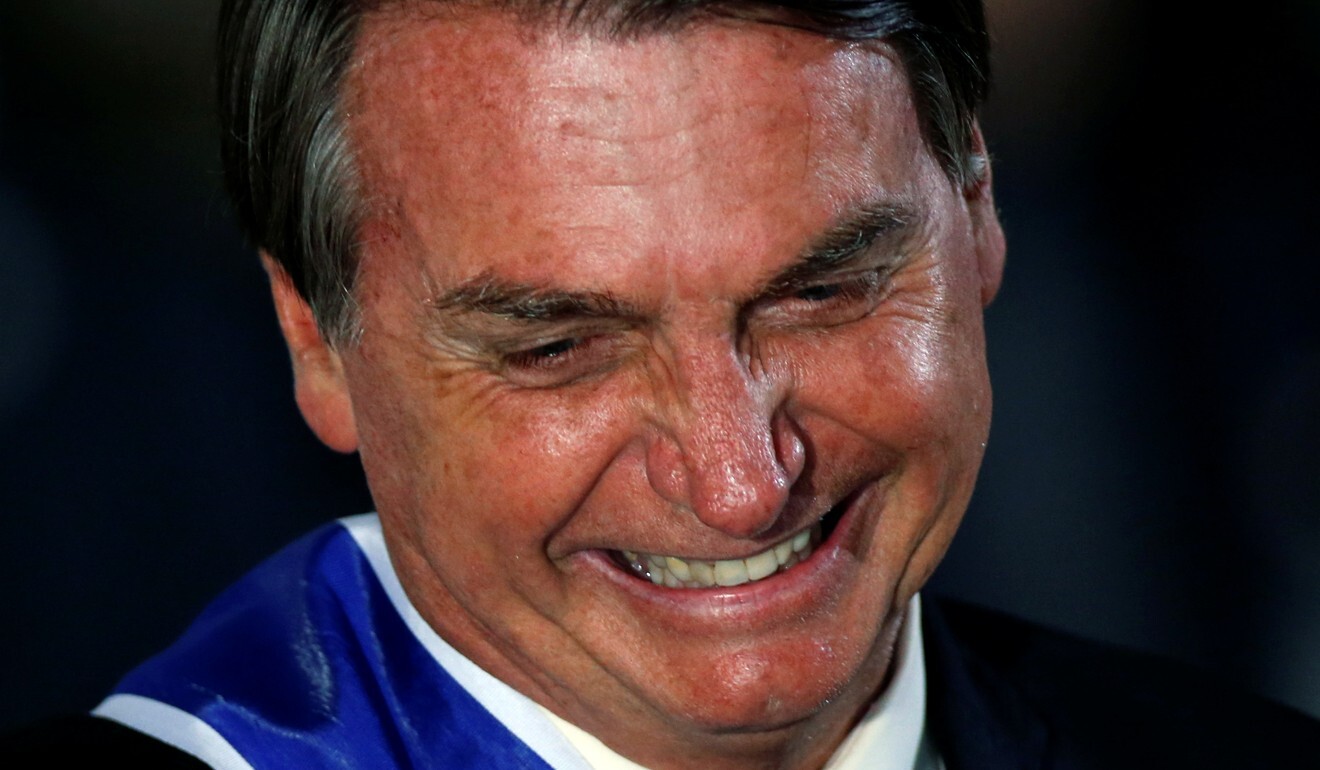
Who will miss Donald Trump? The world leaders with the most to lose if Joe Biden wins US election
- Nations like Turkey, North Korea and Israel will face major challenges from exit of most ‘unconventional’ US president in modern times
- A Biden victory, on the other hand, could prove more of a mixed bag for China and other countries
If Donald Trump is forced from the White House in the November election, he will not be the only loser.
Though many governments would be likely to celebrate the end of the most unconventional and at times chaotic US presidency of modern times, others will have reason to miss it. For the leaders of Turkey, North Korea and Israel, the ledger has been almost entirely positive. Trump’s ejection would confront them with immediate challenges.
The scorecard for countries such as China is more nuanced. Even so, what the mostly authoritarian winners from Trump’s four years in office have in common is a fear his departure would spell the return of a more conventional US foreign policy.
That could see the US mending alliances and promoting the universality of values such as democracy and human rights, or the fight against climate change. “This president embraces all the thugs in the world,” Trump’s opponent Joe Biden said at a recent town hall event, as he sought to highlight the political divide.

North Korea’s Kim Jong-un
No relationship with the US changed more under Trump than North Korea’s. What began with mutual threats and insults morphed into a sometimes bizarre love-in as Kim and Trump met three times and exchanged more than two dozen letters, showcasing their “mysteriously wonderful” chemistry.
Still, the radically different US approach has also failed to secure North Korea’s denuclearisation. Kim unveiled a huge new intercontinental ballistic missile on October 10 that appears capable of delivering multiple nuclear warheads.
Biden has said he will not meet without preconditions, making any rapid lifting of the sanctions that have tipped North Korea’s economy into its worst recession for two decades less likely.

Saudi Arabia’s Mohammed bin Salman
Trump set the tone for his approach to international relations in Saudi Arabia, choosing Riyadh for his first foreign visit in 2017. He was greeted by a huge image of his own face projected onto the facade of the palatial hotel where his delegation stayed.
The Saudi crown prince made important gains, above all Trump’s withdrawal from the 2015 nuclear deal with Iran, his country’s mortal rival. Trump also offered personal support and vetoed congressional sanctions when MBS, as he is known, was besieged by allegations he had ordered the 2018 slaying of prominent regime critic Jamal Khashoggi.
Khashoggi fiancée sues Saudi crown prince in US over journalist’s murder
There have been disappointments for Saudi Arabia, in particular Trump’s failure to strike back militarily after a 2019 attack on oil facilities in eastern Saudi Arabia that the US attributed to Iran.
Saudi leaders say they are confident they could navigate a transition to Biden. Still, with Trump gone a more traditional US focus on human rights is likely to return and a door could open to reviving the Iran accord.

Turkey’s Recep Tayyip Erdogan
If anyone relies more on Trump than MBS for political protection, it’s Turkey’s president. Trump has stood virtually alone between Turkey and the imposition of congressional sanctions over Erdogan’s decision to buy Russia’s S-400 air defence missile system, despite being a North Atlantic Treaty Organization ally.
Their personal bond enabled Erdogan to persuade Trump to withdraw US troops from Kurdish areas of Northern Syria so Turkey could send its own forces to take control of the zone.
Trump made that decision without consulting the Pentagon or US allies in the fight against Islamic State in Syria, including Britain, France and the Kurdish fighters that Turkey regards as terrorists. With sanctions ready for enforcement and Biden previously calling on the US to support Turkish opposition parties, Erdogan may have the most to lose from Trump’s departure.

China’s Xi Jinping
Trump has been more aggressive toward China than any US president in recent memory, slapping tariffs on Chinese goods and moving to restrict its access to key technologies. Yet Chinese officials have said on balance the leadership would prefer Trump to stay.
Trump shook the system of post-World War II alliances that China sees as a constraint on its geopolitical ambitions, a considerable benefit. He also undermined America’s international stature by exiting agreements in pursuit of “America First” policies, creating openings for the Chinese president to fill the resulting void of leadership on everything from trade to climate change.
US-China relations not doomed for a ‘dead end’ under Biden presidency
Beijing’s concern about Biden is that he would try to create a more coordinated international front in dealing with China, while maintaining the pressure on trade and technology.
Even so, China might benefit from a less emotive relationship with Washington if Trump loses, according to Zhu Feng, professor of international relations at Nanjing University. “Do people really want to see China and the US enter a cold war?”

Russia’s Vladimir Putin
Russia’s alleged meddling in the 2016 election produced a formal US investigation and 448-page report. But in some ways, Putin hit the jackpot. In office, Trump has questioned the value of Nato and even the status of countries such as Germany as allies, weakening a transatlantic alliance that Russian and Soviet leaders back to Josef Stalin have sought to break.
There is every reason to think the trend would continue during a second Trump administration. Yet Russia’s president secured few of the more concrete gains he wanted, from lifted sanctions to progress on arms control. Russian officials see few prospects for a thaw, and less so under a Biden administration.
Rather than lament the anti-Russia mood, the Kremlin could try to change it, according to Fiona Hill, the National Security Council’s senior director for European and Russian affairs until 2019.
“They could rein in the guys who are going around poisoning people right, left and centre,” said Hill, now at the Brookings Institute. “When they’re having meetings with us, they could not poke us in the eye. They could just stop doing all that.”

Brazil’s Jair Bolsonaro
For Brazil’s president, Trump is a political soul mate. As US opinion polls have turned for Biden, Bolsonaro has grown increasingly concerned for the future of his ties with the White House, according to a senior cabinet member.
Since taking office in 2019, Bolsonaro has upended Brazil’s decades-old tradition of an equidistant foreign policy in favour of automatic alignment with the US and its allies. In return, Trump lifted a ban on fresh beef imports, supported Brazil’s bid to join the Organization for Economic Cooperation and Development, and signed deals for defence and space-exploration cooperation.
Foreign Minister Ernesto Araujo has said Brazil would have no problem with a Biden administration, but Bolsonaro’s environmental policies would face strong opposition. Biden has suggested Brazil could face economic consequences if it does not stop Amazon deforestation.

Israel’s Benjamin Netanyahu
Trump repeatedly broke with US precedent to boost the Israeli leader’s nationalist agenda, recognising Israeli sovereignty in the disputed Golan Heights and moving the American Embassy to Jerusalem. Plans to annex parts of the Palestinian West Bank have been shelved, but could be revived in a second Trump term.
The real payoff came in September, when Trump brokered normalisation deals between Israel and the United Arab Emirates and Bahrain, but there’s been a cost; bipartisan support for Israel in Congress has eroded.
Many Israelis fear their country would face greater scrutiny under a Biden administration, while the security establishment worries about a US return to the Iran nuclear deal.

